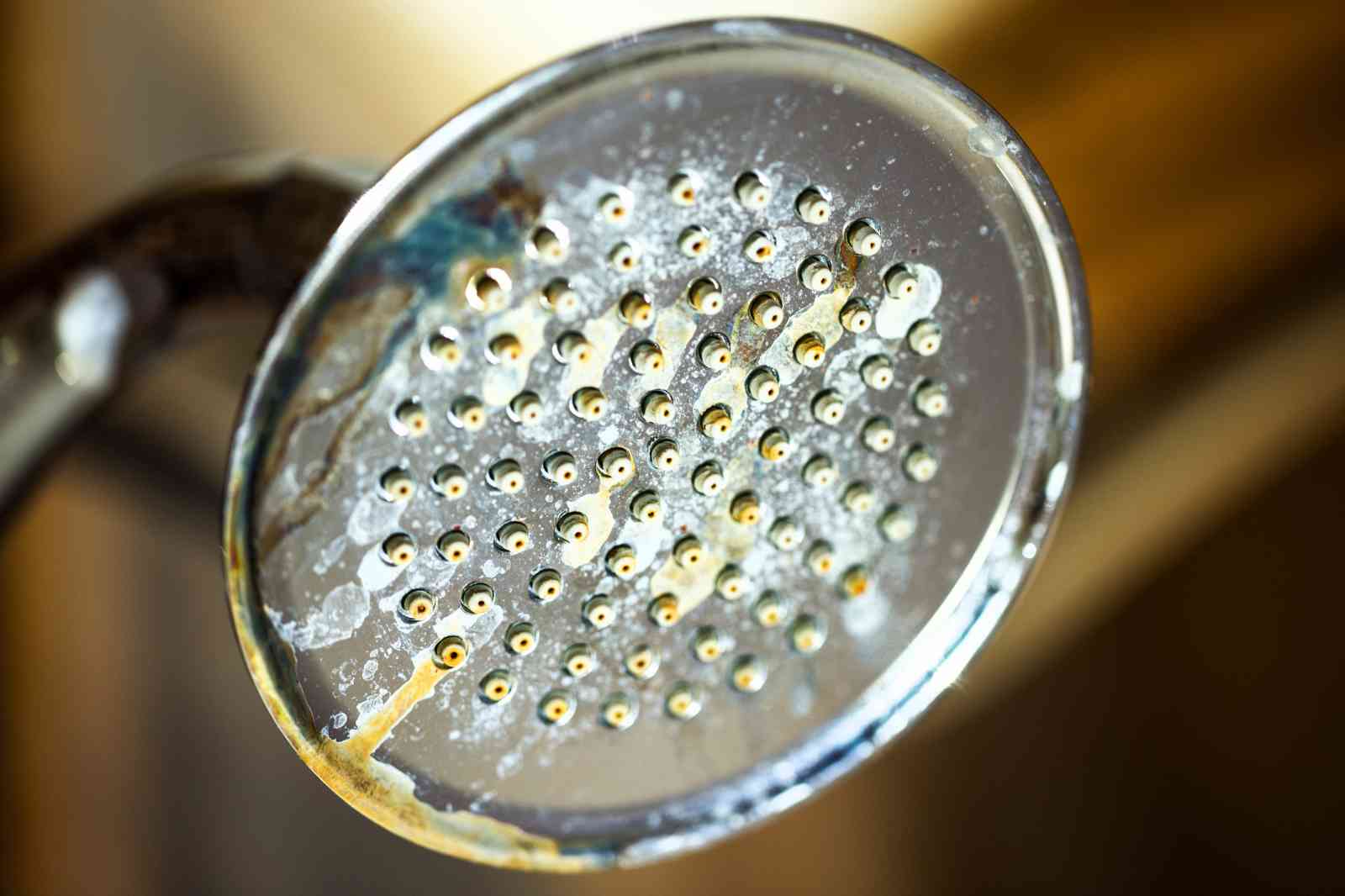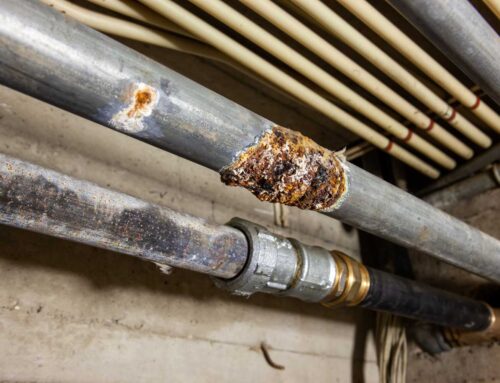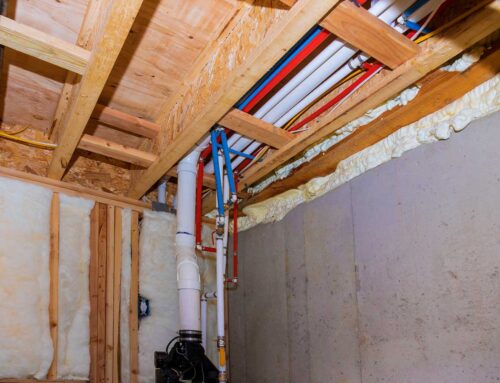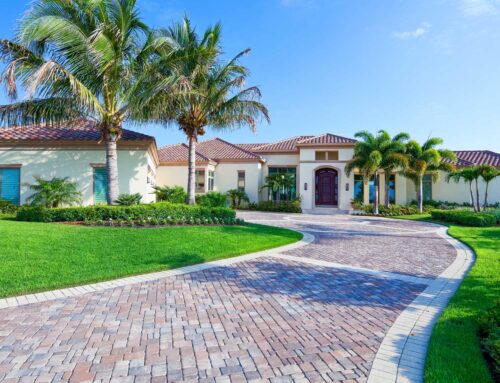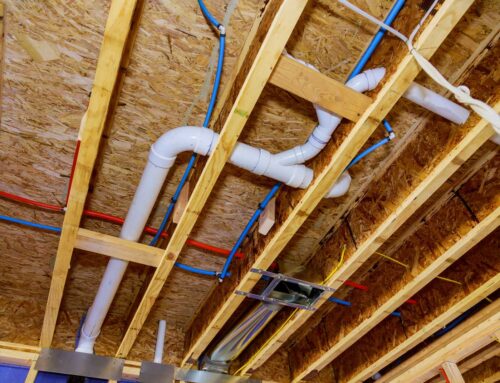In this comprehensive blog post, we delve into the detrimental effects of hard water on your home plumbing system. Exploring the composition of hard water—rich in minerals like calcium and magnesium—we uncover how these elements accumulate in your pipes over time, causing blockages and reduced water flow.
The article identifies common signs of hard water damage, such as limescale buildup on fixtures and decreased water pressure, and highlights the impact on water quality and the efficiency of plumbing fixtures. Providing insights into the potential corrosion of pipes, the blog suggests practical solutions like installing a water softener to prevent hard water damage, extend the lifespan of your plumbing system, and improve overall water flow.
Discover the importance of recognizing and addressing hard water issues, not only for your plumbing but also for the well-being of appliances like water heaters, dishwashers, and washing machines. Learn how maintaining optimal water quality through proactive measures can ensure the longevity and efficiency of your home’s plumbing system.
What is Hard Water and How Does it Affect Your Plumbing?
Hard water, characterized by elevated levels of minerals like calcium and magnesium, has a profound effect on your pipes as it leaves behind mineral deposits that gradually accumulate over time. It can lead to blockages and diminished water flow, placing strain on the plumbing system and potentially resulting in leaks or bursts. Recognizing the signs of hard water damage, such as limescale buildup and reduced water pressure, is crucial in understanding its implications on your plumbing fixtures.
Furthermore, hard water influences the quality of your drinking water, causing an unpleasant taste due to the minerals present, while also emphasizing how mineral accumulation can impede water flow throughout your plumbing.
Effects of Hard Water Buildup in Pipes
The buildup of minerals from hard water in pipes can lead to blockages and reduced water flow. This can put strain on your plumbing system and result in potential leaks or bursts. To prevent this, consider installing a water softener to reduce the mineral content in your water and prevent buildup in your pipes.
Regularly cleaning and maintaining your pipes can also help prevent blockages. If you notice reduced water flow or hear strange noises coming from your pipes, it’s important to address the issue promptly to prevent further damage. Ignoring the problem can lead to costly repairs and potential water damage to your home. By taking proactive measures to prevent mineral buildup in your pipes, you can help prolong the life of your plumbing system and avoid potential issues down the line.
Signs of Hard Water Damage to Your Plumbing System
Common signs of hard water damage include limescale buildup on faucets, sinks, and showerheads, as well as a decrease in water pressure and efficiency in your plumbing fixtures. Additionally, you may notice white or cloudy spots on dishes and glassware after washing, a film or residue on shower walls and doors, and dry, itchy skin and hair after showering. Hard water can also cause your clothing to become stiff and faded after washing, and can lead to damage and wear on your appliances such as water heaters, dishwashers, and washing machines. If left untreated, hard water can cause long-term damage to your plumbing system and fixtures, leading to costly repairs and replacements.
How Hard Water Affects Water Quality and Flow
Hard water can affect the quality of your drinking water by making it taste unpleasant due to the minerals present. Additionally, the buildup of minerals can restrict water flow in your plumbing. It can also leave behind scale deposits on dishes, faucets, and other surfaces, making them look dirty and requiring more frequent cleaning. Furthermore, hard water can decrease the effectiveness of soaps and detergents, leading to issues with cleaning dishes, laundry, and personal hygiene.
In the long term, the minerals in hard water can also cause damage to your appliances and plumbing systems, leading to costly repairs and replacements. Installing a water softener can help reduce the negative effects of hard water and improve the overall quality of your drinking water.
Understanding the Impact of Hard Water on Pipes
Hard water can cause damage to pipes by corroding them over time. The minerals in hard water react with metal pipes, leading to degradation and eventually leaks. Additionally, hard water can cause mineral buildup and blockages in pipes, which can restrict water flow and lead to clogs. This can result in decreased water pressure in your home and potentially costly repairs. In extreme cases, these blockages can completely clog a pipe, causing it to burst and flood your home.
To prevent damage from hard water, you can install a water softener system in your home. This system works by removing the minerals that cause water hardness, preventing them from damaging your pipes and appliances. Regular maintenance and cleaning of your pipes can also help prevent buildup and damage caused by hard water.
Overall, it is important to be aware of the effects of hard water on your plumbing system and take steps to prevent potential damage. By addressing the issue of hard water in your home, you can save yourself from costly repairs and ensure the longevity of your plumbing system.
Best Solutions to Prevent Hard Water Damage
Installing a water softener is one of the best solutions to prevent hard water damage. A water softener system can remove minerals from the water, providing you with soft water that is gentle on your pipes.
There are different types of water softeners available, including salt-based and salt-free options. Salt-based water softeners use sodium to remove minerals from the water, while salt-free options use a special filter or other technology to prevent mineral buildup without adding sodium to the water.
When considering installing a water softener, it’s important to consider factors such as your water hardness level, household size, and budget. It’s also important to regularly maintain and service your water softener to ensure it continues to work effectively.
Overall, installing a water softener is a great investment in protecting your home and appliances from hard water damage and improving the quality of your water for everyday use. KBR is a Clearwater plumber that installs water softeners.
Benefits of Installing a Water Softener
By installing a water softener, you can extend the lifespan of your plumbing system, improve water flow, and protect your appliances from the damaging effects of hard water buildup. Additionally, softened water can lead to better skin and hair health, as well as cleaner dishes and laundry. By reducing the mineral content in your water, a water softener can also save you money on cleaning products and reduce the amount of soap needed for bathing and washing clothes.
Overall, investing in a water softener can improve the quality of water in your home and provide numerous benefits for both your health and your wallet. It is a smart investment that can make a significant difference in your daily life.
Recognizing the Signs of Hard Water Damage
If you notice limescale buildup on your plumbing fixtures, such as faucets and shower heads, it could be a sign of hard water damage. Additionally, a decrease in water heater efficiency and low water pressure are indicators of hard water issues.
Common Signs of Hard Water Affecting Plumbing Systems
Hard water can affect plumbing systems by clogging pipes and reducing water flow, leading to costly repairs and decreased efficiency in your water supply.
Impact of Hard Water on Water Heater Efficiency
Mineral deposits from hard water can accumulate in your water heater, reducing its efficiency and increasing energy consumption. Regular maintenance and water softening can help prevent these issues.
How Hard Water Buildup Can Impact Water Pressure
Hard water buildup in pipes can restrict the flow of water, causing a decrease in water pressure throughout your plumbing system. This can lead to issues like slow drainage and ineffective water usage.
Preventing Hard Water Damage to Your Plumbing System
Softening hard water for your drinking water can improve its taste and quality. Using a water softener can help eliminate the minerals that cause hard water problems in your plumbing.
Professional Plumbing Services for Hard Water Issues
If you’re experiencing persistent hard water problems, seeking professional plumbing services can help diagnose the issue and provide tailored solutions to protect your plumbing system.
Understanding the Importance of Clean Water in Your Plumbing
Clean water is essential for maintaining the integrity of your plumbing system. Hard water can introduce contaminants and mineral buildup that compromise water quality and flow.
The Importance of Addressing Hard Water Issues
Hard water not only affects your plumbing system but can also cause damage to appliances like dishwashers and washing machines. The minerals in hard water can lead to scaling and reduce the efficiency of these appliances.
Effects of Calcium and Magnesium Buildup in Pipes
Calcium and magnesium buildup in pipes can restrict water flow and lead to corrosion. Over time, this can result in leaks and costly repairs to your plumbing system.
Maintaining Optimal Water Quality and Flow in Your Home
By addressing hard water issues and maintaining optimal water quality, you can ensure that your plumbing system operates efficiently and effectively. Installing a water softener is a proactive step towards preventing hard water damage. Contact us today to get your installed.
